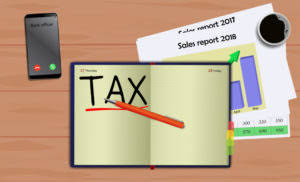
Prepare Financial Statements – Generate profit and loss statements to assess monthly performance. In this guide we’ll tell you all you need to know about the basics of bookkeeping for self-employed professionals, to make it as straightforward and productive as possible. More likely it can seem like yet another complicated and daunting task. Effective bookkeeping does take time, effort and some initial self-education to learn how to do. You also must pay Class 2 & Class 4 National Insurance within 3 months of becoming self-employed.
- Our suite of products works together to offer a streamlined accounting solution that keeps your finances in order, even when you’re busy working on a looming deadline.
- This is especially important for sole traders, who are responsible for managing their own finances.
- Delve deeper into how you can use management reports to your advantage.
- When you’re juggling the books as a sole trader, managing cash flow can often feel like you’re walking a tightrope.
- Classifying transactions right is vital – miscoded figures severely skew reports relied upon for managing taxes, profits, and cash.
- Accountants and bookkeepers at Meru Accounting can keep your financial affairs in order.
Find your next accountant

If there are discrepancies between your bank statements and accounting records, addressing them immediately can prevent bigger problems down the road. One approach is to use a physical or digital filing system that separates receipts by category, such as office supplies, income statement travel expenses, or equipment purchases. Another strategy is to utilise cloud-based accounting software that allows you to automatically capture and store digital copies of receipts in real-time. In addition to tracking inventory levels, you should also monitor assets such as equipment and vehicles used for business purposes. Keeping accurate records of assets allows for better planning when it comes time for maintenance or replacement. An accountant is more focused on finding tax-savings and obtaining revenue via tax-reliefs/rebates.
Recording income:

Nevertheless, there are still rules and regulations you must follow to ensure you’re ready to go. Bill your clients, track your invoices and monitor payments using an easy-to-manage system that does most of the work for you. Our range of simple, smart accounting software solutions can help you take your business to the next level.

Be VAT & CIS confident
You can use a software like okke to create invoices that automatically record payments made by clients. It’s also essential to keep all receipts for expenses such as rent, utilities, office supplies or equipment purchases. This will make it easier to reconcile bank accounts and create accurate profit and loss statements. It can also help you identify potential issues such as bad debt that may need to be written off.

Business Tax
- The key reason for opening a business bank account is that it keeps your business finances separate from your personal money.
- However, if you have a lot of transactions or want to scale your business in the future, then investing in accounting software is worth considering.
- Sole tradership is the simplest form of business entity, and it’s super popular due to its simplicity and personal control.
- You can use bookkeeping software to automatically categorise your income and expenses, or you can do it manually.
- Invoices should include the date, a unique invoice number, a description of the goods or services provided, and the total amount due.
- Meticulously separating professional versus personal spending is non-negotiable.
- In this article, we’ll explore what bookkeeping for sole traders is, why it’s essential, and how it can benefit your business.
So, the HMRC would like business owners to start submitting tax records digitally. Deductible expenses are business-related costs that sole traders can subtract from their gross income before calculating taxable income. These can include travel expenses, equipment, supplies, and home office expenses, effectively lowering their tax liability. When you’re juggling the books as a sole trader, managing cash flow can often feel like you’re walking a tightrope. Your goal’s to avoid taking a tumble into https://www.bookstime.com/ the abyss of negative cash flow, which can be devastating for your business.

Prepare for Year-End and Tax Season – This involves summarising the year’s financial activities, organising records for tax filing, and evaluating the business’s financial health. So allow sufficient time for closing the books to reduce stress and last-minute rushes. Deductible expenses can significantly reduce taxable income, and familiarising yourself with them will help you make accurate entries into your books.
Differences between bookkeeping and accounting
- The chart of accounts is a listing of all accounts used by your business to record transactions such as revenue earned and expenses incurred.
- It provides a more accurate picture of your financial position and is often favored by larger or more complex businesses.
- Recording transactions is the backbone of any bookkeeping system for sole traders.
- Lenders and investors want to know that your company is financially secure.
- Accounting might seem a bit like a tightrope walk – daunting at first but manageable with some balance and focus.
Start by collecting all your receipts, invoices and bank statements. Record these systematically, separating personal and business transactions – you don’t want your grocery list in the middle of your supply orders. It’s a bit like updating your address bookkeeping for sole trader when you move; HMRC needs to know where to find you. This isn’t just for correspondence—it’s how you get set up for Self Assessment tax returns, which are non-negotiable. You’ll need to record your income and expenses throughout the year and report them annually. Keep in mind that because you’re taking the DIY route, there’s a risk of mixing personal and business expenses – a faux pas in the accounting world.
